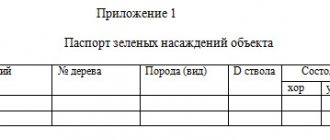Conditions for environmental education
The term “condition”, if we rely on the work of V.I. Dahl, it should be considered as the dependence of one thing on something else. Ozhegov defines this concept as circumstances that influence something, as well as the surrounding environment of ongoing processes or events.
But scientist V.V. Yurchuk defines conditions as a system of external and internal manifestations that strongly influence certain mental phenomena, and they have an impact either on one person or on a group of people.
According to N.M. Borytko, conditions must be understood as external circumstances that most strongly influence the course of the process and which are consciously designed by the teacher, striving to achieve the desired result.
In order to better understand the essence of conditions in pedagogy, you can also familiarize yourself with the works of S.V. Kulnevich, who argues that pedagogical conditions are one of the most important components of the entire pedagogical process and are a purposefully organized environment that has a positive impact on the formation of value attitudes, skills and abilities in the minds of students.
For effective environmental education, it is necessary to ensure that the pedagogical conditions are met:
- the use of didactic games, varied in content and form (these should be word games, board games, and games using natural materials);
- organization of game learning situations;
- the gradual introduction of didactic games that have an environmental connotation (children need to be prepared for such games, and after them, the results must be analyzed).
Next, we discuss each of the pedagogical conditions listed above in detail.
Stage-by-stage conduct of games
This is another pedagogical condition that we will now discuss. The teacher organizes didactic games on environmental topics in three stages: he first prepares for the game and prepares the children for this, then he conducts this game and analyzes the results at the end.
What can be included in the preparation of a didactic game?
- choosing a game based on what educational and educational tasks are set for children. For example, these could be games that develop sensory perception, or activate thinking, or replenish children’s vocabulary, etc.
- determining whether the selected game meets the requirements for the current education program for this particular group.
- choosing the most appropriate time to organize a didactic game on environmental topics. For example, you need to decide whether to play the game during the learning process during class, or in some other free time from class.
- decision regarding the composition of the playing team (this can be all the children, or divide them into several subgroups, or play the game individually with each child).
- studying the game, determining the role of the teacher himself, how to manage it.
- preparing the boys themselves for the game. This may involve providing them with certain knowledge and helping them acquire certain skills.
If we talk about the second stage - about playing the game, then it implies:
- introducing the children to the content and materials of the game;
- explanation of the rules of the game;
- demonstration of actions that children will have to perform. Sometimes it is necessary for the teacher to first show exactly how to perform this or that action so that it leads to the required result;
- the teacher must decide what his direct role is in the game itself - he is either a participant, or a judge, or just a fan;
- determination of game results. This is a very important stage, because it is according to the results that you can determine how effective the game was and whether the children really liked it, and also gave them the necessary skills and knowledge.
Analyzing a didactic game after it has been carried out, you need to understand which methods of preparation and implementation were effective and which did not work well enough.
It is necessary to determine why some work methods did not lead to the desired result. This is important as it will help improve the entire process and lead to even more positive results in the future. It will also help to understand the individual personality traits of some children, which need to be taken into account in the future.
It is important to rely on children’s abilities when conducting and analyzing didactic games on an environmental topic. Children often show curiosity and are interested in everything that is unusual. They like to solve mysteries and riddles, find solutions to incomprehensible problems, and express their own opinions on various matters. As children gain new knowledge, they begin to think differently.
It is important to choose games that are not too difficult for children, but also challenging enough to challenge their abilities.




